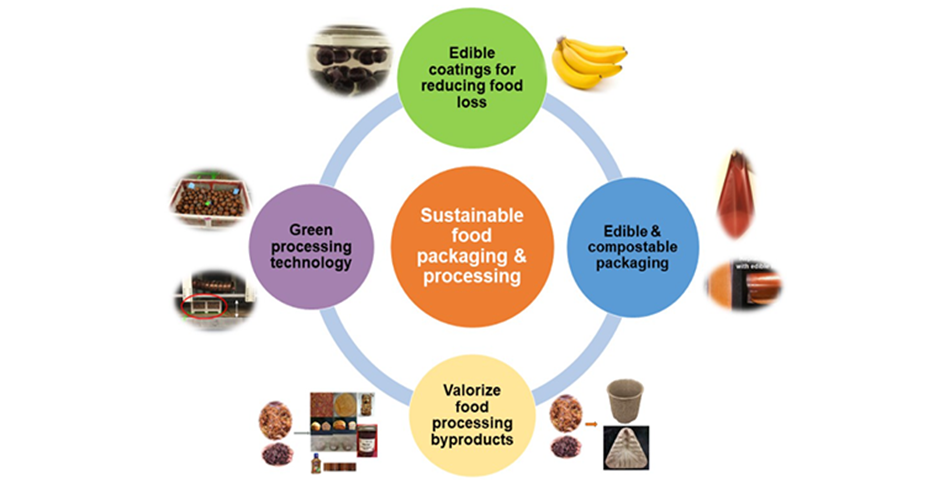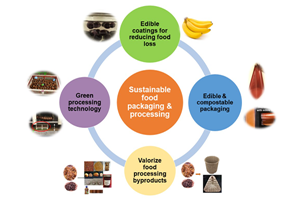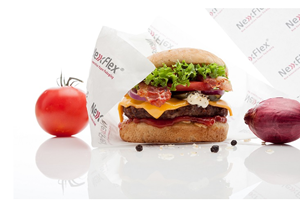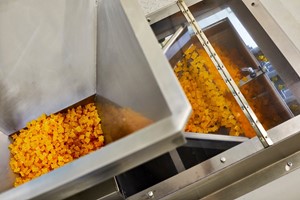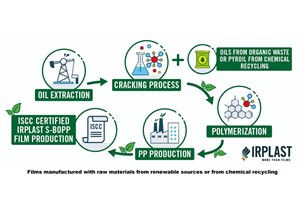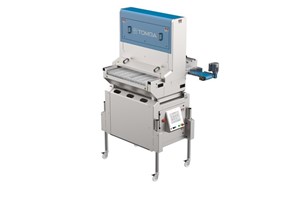Researchers at Oregon State University convert juice pulp into edible films and compostable packaging to reduce food waste.
What if packaging that could dramatically reduce the environmentally impact was made from a food processing byproduct, pomace?
That’s one of the projects underway in the Sustainable Food Processing and Packaging Lab on the campus of Oregon State University under the direction of Yanyun Zhao, a professor in the Department of Food Science and Technology. With a doctorate in food engineering - she studied modified atmosphere packaging for her dissertation research - Zhao specializes in sustainable packaging development.
For several key projects under her direction, the base material is pomace, the pulpy byproduct that’s left after the juice of apples, wine grapes, and other fruit or vegetables is extracted. In one example, whole pomace is used to make compostable packaging. In another, pomace extract is used to produce edible films.
Pomace from fruit and wine grapes is an abundant resource of dietary fiber, phenolics, and other bioactive compounds, Zhao points out. While some companies have been extracting bioactive compounds from pomace, “there’s a huge amount of bulk material left…my research is aimed to use 100% of this fiber-rich byproduct to create eco-friendly packaging,” she tells Packaging Digest.
According to Zhao, fruit and vegetable pomace have high amount of phenolics, which provide good antioxidant and antimicrobial effects. Pomace-based edible films protect food products and provide additional antioxidant and antimicrobial benefits to packaged food.
While the research engages theoretical and fundamental studies, it also involves working closely with industry partners.
“It’s aimed at the commercial needs in the market and thus develops materials with specific functionality to meet targeted applications,” Zhao says.
The pomace is provided by local juice processors for free. “They’ve been highly supportive of our research,” she adds.
In other research, the lab produces edible films using food polymers to replace single-use plastic for foods. Some applications studied in Zhao’s lab include a single-use, edible-oil-and-seasonings pouch; an edible muffin liner (shown below); an edible wrap produced from pomace extract for fruit leather; and edible films that can be interleaved to wrap stacks of sliced cheese or meat for packaging.
In a parallel project, whole pomace is utilized to create compostable molded-pulp packaging products. That research has been underway for years with a granted patent, “but requires further research and development for creating packaging products to meet specific criteria of given food packaging applications,” Zhao notes.




